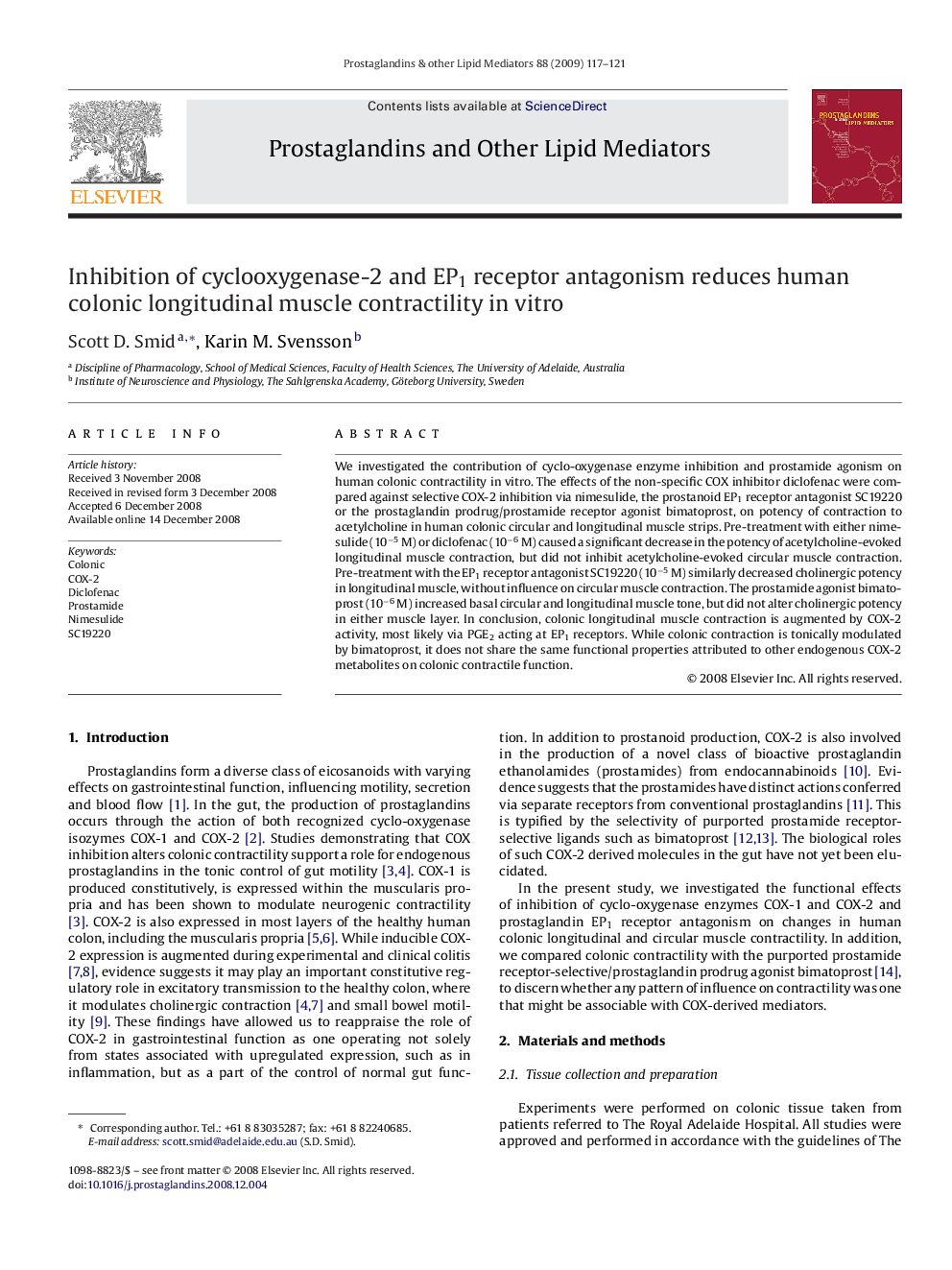| Article ID | Journal | Published Year | Pages | File Type |
|---|---|---|---|---|
| 2019963 | Prostaglandins & Other Lipid Mediators | 2009 | 5 Pages |
We investigated the contribution of cyclo-oxygenase enzyme inhibition and prostamide agonism on human colonic contractility in vitro. The effects of the non-specific COX inhibitor diclofenac were compared against selective COX-2 inhibition via nimesulide, the prostanoid EP1 receptor antagonist SC19220 or the prostaglandin prodrug/prostamide receptor agonist bimatoprost, on potency of contraction to acetylcholine in human colonic circular and longitudinal muscle strips. Pre-treatment with either nimesulide (10−5 M) or diclofenac (10−6 M) caused a significant decrease in the potency of acetylcholine-evoked longitudinal muscle contraction, but did not inhibit acetylcholine-evoked circular muscle contraction. Pre-treatment with the EP1 receptor antagonist SC19220 (10−5 M) similarly decreased cholinergic potency in longitudinal muscle, without influence on circular muscle contraction. The prostamide agonist bimatoprost (10−6 M) increased basal circular and longitudinal muscle tone, but did not alter cholinergic potency in either muscle layer. In conclusion, colonic longitudinal muscle contraction is augmented by COX-2 activity, most likely via PGE2 acting at EP1 receptors. While colonic contraction is tonically modulated by bimatoprost, it does not share the same functional properties attributed to other endogenous COX-2 metabolites on colonic contractile function.
